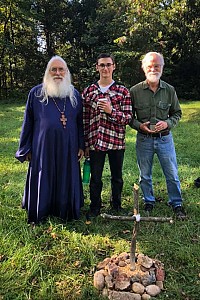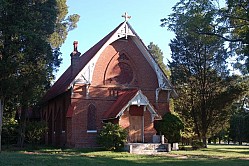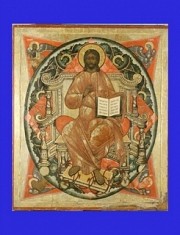The unity into which our Lord God calls us is unlike any other idea or form of unity known to us. This is because all our notions of unity are bound by our finite circumstances. Within these circumstances, we become united in one form or another throughout our lives: the unity within our various levels of community, town, state and nation, the unity of friendship, the unity that is the fruit of human love; perhaps we even rise to a notion of the unity of all humanity. We know that the limitations of time and change of circumstance can fracture or dilute any purely human form of unity. As we move through life and begin to get intimations of mortality, we know that even those forms of human unity that have the promise of life-long endurance, such as a good marriage or a close family or close friendships, have an end in this world determined by the end of life. Yet our desire for unity does not cease. We cry out for it in popular songs: “Let’s get together,” “Let’s stay together,” “All you need is love,” “We are the world.” Few hearts are too hard to be softened by the common yearning for unity, even if the promise is distant.
But the unity into which our Lord draws us is of a different kind. It is a unity not bound by time and circumstance. It is a unity with Himself in His Body the Church. Because He became one of us and yet remains God, in His infinite mercy he creates circumstances where within our time-bound existence, we can be with Him; we can be one with Him. He has provided the answer to His own prayer to the Father in the Gospel of John for the unity of the Church with Himself. This answer is in the Mystery of the Assembly in the Divine Liturgy where he condescends again and again to fulfill His promise to be always with us in His Body and Blood consecrated at the hands of the priest for himself and all the people of God. Calling on us in our remembrance of Him to give of the simplest and most fundamental elements of life, bread and wine, He proclaims again and again through the mouth of the celebrant the same words that He said to the disciples in the upper room. We are one with them and all those in all ages of the Church and we are one with Him.
All the while He is feeding us with Himself, He remains what He always was and is: True God, dwelling in eternity outside of time and place. Thus, through these apostolically exemplified and divinely commanded actions done at the appointed times, we together with the whole Church, travailing and triumphant, join Him outside of time. This unity is the quintessential intangible reality, though not always and altogether intangible. We have inspired testimony of the presence of Saints and Angels present and serving. Gifted and holy people have seen the fire of the Godhead present in the chalice. We, lowly and sinful, ourselves touch with our lips and take into our person His Body and Blood in the elements of bread and wine. We should scarcely wonder, then, when we are inspired, along with the Church throughout her ages, to cry out “Lord, have mercy!” and are inspired with the petitioner, to with gladness “commit ourselves and one another and all our life unto Christ our God.” This proclamation of unity of purpose gives voice to the unity of being in the mystical life of the Church.
The infusing of our life with the mystical life of the Church, then, can help cause all the fruits of the spirit to come out in us and through us. “Love, joy, peace, longsuffering, patience, goodness, gentleness, faith, meekness, temperance” is the catalogue of the Holy Apostle Paul. No one has heard of an excess of these. If we all tried with all our might to approach the fullness of these gifts, all people would be drawn toward and into this divinely inspired unity.
But how much, in fact, do these fruits manifest in us? Sadly in our sinfulness, we must confess that we fall well short of doing what we can to nurture and cultivate spiritual fruits. It is perhaps the need to husband what we are given in the mystical life of the Church that caused Holy Hierarch John of San Francisco and Bishop Nectary of blessed memory to remain in the altar for a considerable time after the conclusion of the Divine Liturgy. If, for whatever reason, we are not able to do as they did, do we at least take time to reflect on what God has done for us on the days we partake of His mysteries?
If we do this, if we exercise our will, if at least during the time of the prayers of Thanksgiving after the reception of the Holy Gifts we take the trouble to pay complete attention to these thanksgivings, if we take the trouble to join in them with inner focus, we may begin to water what God has planted in us this day. We may begin to see our life and will reflected or shown to us in His light and be in such a state as to adjust our life and will to His. We may begin to grow in the Spirit. We may begin to become more loving, more joyful, more peaceful; we may begin to grow those gifts within us so that God the Holy Spirit can show in us through the grace of His gifts as we begin to treasure them for the precious things they are. If we so shine with His grace and gifts, men and women true of heart and seeking will see through us that for which they look: oneness, unity with God.
God grant us so to grow in this holy time of Pentecost.
Father George
$500,000.00
Click the "Subscribe" button to receive updates on parish news and our Parish Hall Building Project...
From 'St John of Shanghai and San Francisco, Zealous Builder of Churches'
Everywhere he went he either oversaw the building of churches or supported the same with his attention and prayers... He wrote about the godly work of building churches:
"In building churches here on earth, we create for ourselves eternal habitations in heaven."











